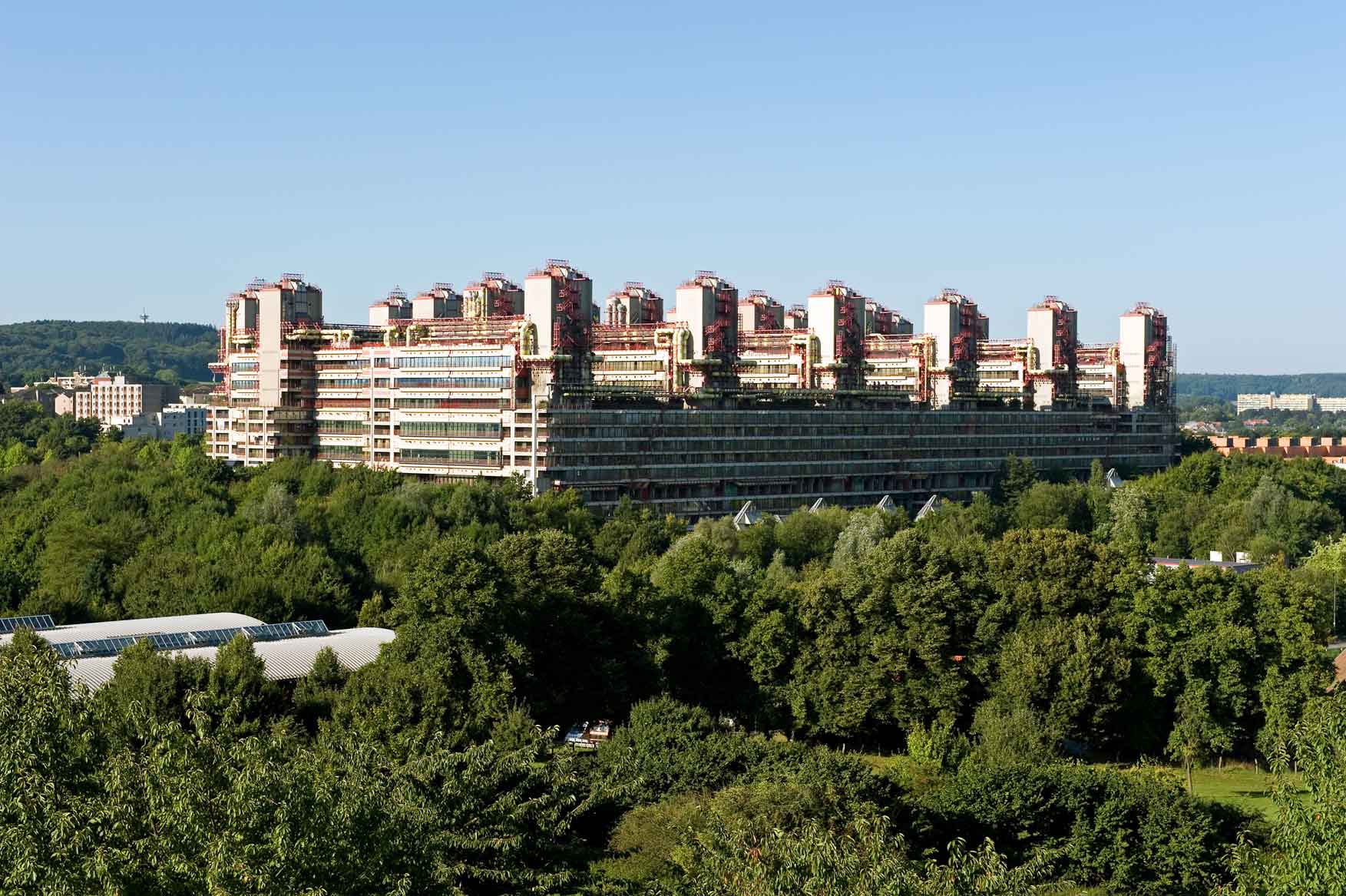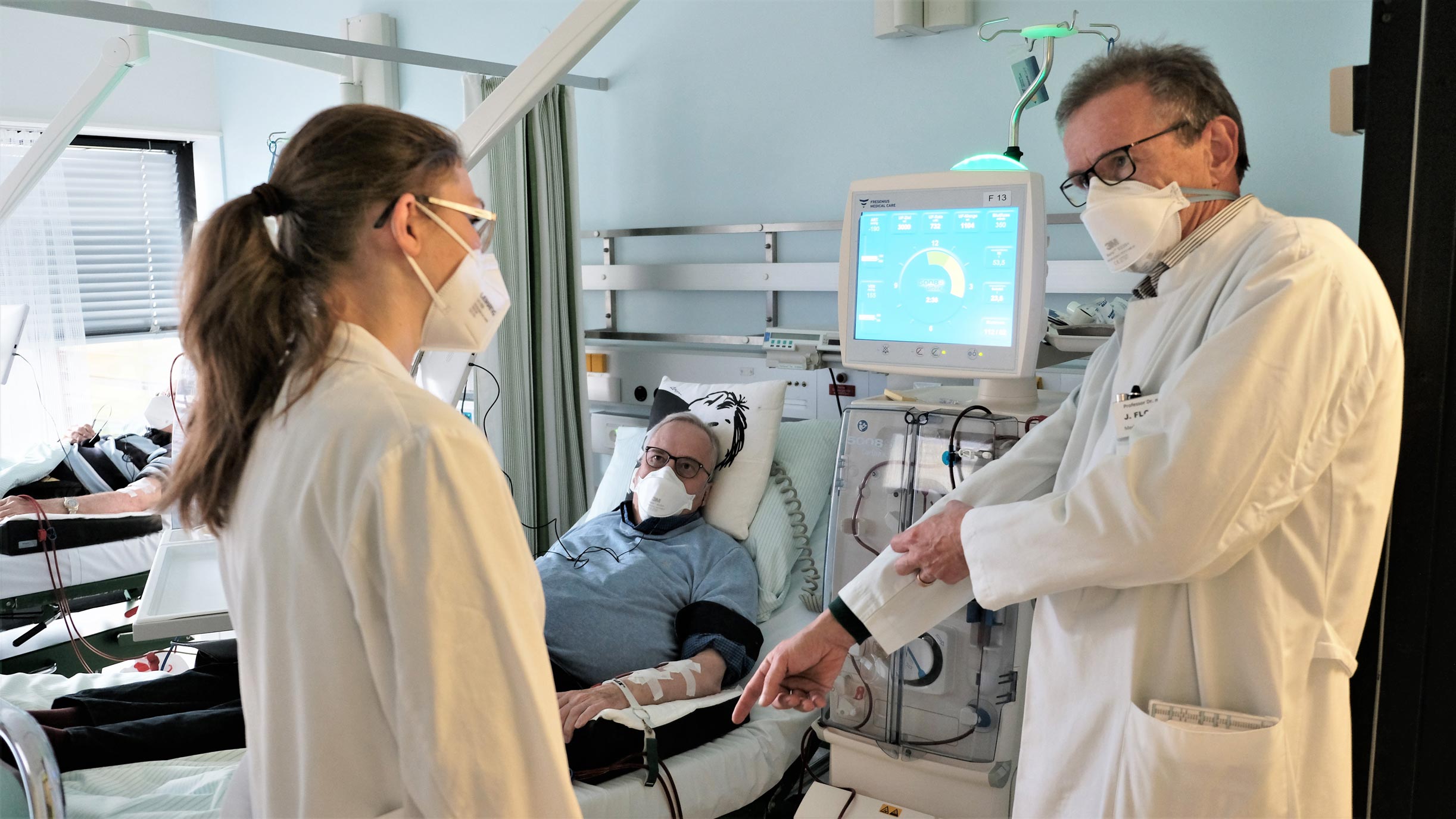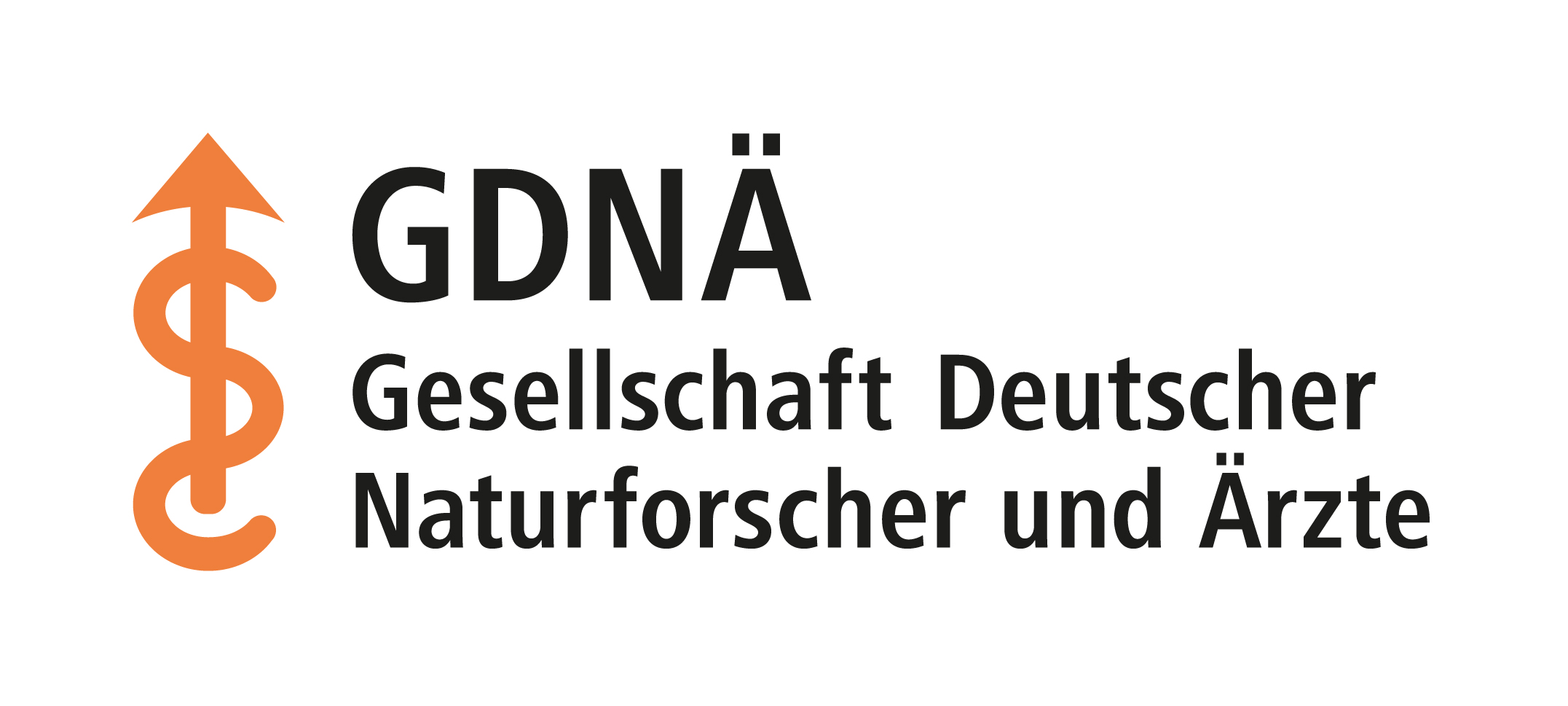“The pandemic has driven us deep into the red“
Now it’s up to the politicians, says Professor Jürgen Floege. He heads the University Clinic for Renal and Hypertension Diseases in Aachen, is committed to more research and likes to think outside the box – also in the GDNÄ.
Professor Floege, with what thoughts and feelings do you as clinic director look forward to the second pandemic winter?
I am relatively relaxed. I don’t expect the kind of strain we had at the beginning of the pandemic this winter. In the spring of 2020, there were many seriously ill patients on the wards, which also had to do with the geographical proximity to the then Corona hotspot Heinsberg. We are currently looking after about a dozen Covid 19 patients in our clinic. One hundred percent of them are unvaccinated. Some of them are young and have no previous illnesses, yet they now have to be artificially ventilated. This shows quite clearly that no immune system, no matter how strong, can help against this disease; the best protection is offered by vaccination.
Do the employees in your clinic also see it that way?
Yes, most of them have been vaccinated twice. In the meantime, many of them – including myself –have had a third vaccination. We don’t have any compulsory measures, but we appeal for common sense and consideration. So far, we have done well with this. We are currently concerned about a completely different issue.
Is it also related to the pandemic?
Directly. The pandemic has burdened us with high additional expenses and driven us deep into the red. Even before the pandemic, three quarters of the German university hospitals were running deficits, and now almost all of them are like us. Each of these hospitals treats patients that no other hospital can or wants to treat; in addition, we are responsible for training young doctors on a large scale. This costs time and money and is not sufficiently rewarded by the current remuneration system. Therefore, we urgently need supplements, which politicians have so far refused to grant. At my hospital, but also in many other hospitals, this has led to an investment backlog of the highest order. Important projects now have to wait.

© Peter Winandy
The University Hospital Aachen was founded in 1985 and today employs around 8,500 staff in 35 specialist clinics, 30 institutes and six interdisciplinary units. Every year, more than 50,000 patients are treated there as inpatients and a good 200,000 as outpatients. The hospital is located in the west of Aachen in the immediate vicinity of the municipality of Vaals in the Netherlands.
Your speciality is the kidney – an organ that medical laypeople do not necessarily associate with the coronavirus.
Yet the kidneys are one of the most frequently affected organs after the nasal mucosa and lungs. One third of all people who are severely affected by Covid-19 suffer from kidney failure. And it is not at all rare for an infection to lead to late damage in the kidneys that does not disappear.
How common is kidney damage in this country?
Very common. In about four million people, the kidney function is below 30 percent of its possible capacity. And in half a million people, kidney function has dropped to 15 percent or less. If the function drops to five to seven percent, those affected are dependent on dialysis as kidney replacement therapy, unless a new kidney is available for transplantation.
It is estimated that kidney disease will be the fifth leading cause of death worldwide by 2040. Yet in your field, nephrology, there are currently the fewest clinical trials for new therapies. Why is that?
It has to do with the complexity of kidney diseases. They are difficult to control and difficult to research. Very few patients only have kidney problems; most of them also suffer from diseases of the cardiovascular system, the lungs or the gastrointestinal tract, to name just a few diagnoses. People with pronounced kidney damage are often kept away from drug studies because these studies depend on a functioning organ – after all, the vast majority of active pharmaceutical ingredients are excreted via the kidneys. In addition, the treatment of kidney patients is highly individualised, there are hardly any standard prescriptions. And medicines that have the intended effect in healthy kidney patients can in some cases have a completely different effect in patients with severe kidney disease.

© J. Floege
Visiting dialysis patients is part of the daily work of Jürgen Floege’s team.
Nevertheless, there is a lot of research going on in your clinic. On which topics?
Apart from kidney diseases, it is about rheumatological-immunological diseases. We initiate and participate in clinical studies, but also do basic research. Just recently, the Collaborative Research Centre “Mechanisms of Cardiovascular Complications in Chronic Renal Insufficiency”, which we run together with the outstanding heart specialists at our university, was rated very highly and recommended for a second funding period. We are also involved in Covid-19 research: some colleagues are currently in the process of creating an artificial kidney in the test tube in order to test new therapeutic approaches on it. With my own research group, I want to find out whether high-dose administration of the coagulation vitamin K can help dialysis patients. There are indications that the K2 variant in particular protects the blood vessels that are under great strain in chronic kidney disease. K2 is only found in very few foods, for example in the Japanese soy product natto. For our study, we use synthetically produced vitamin.
What can we do ourselvesf for healthy kidneys?
It is important to have a normal weight, blood pressure values below 130/80 millimetres of mercury and little salt. The optimal salt intake is up to five grams a day, which corresponds to just one teaspoon – much more is unhealthy. In addition, diabetes is associated with a considerable risk of kidney disease: For this reason, too, the disease should be avoided if possible or the blood sugar should be well adjusted if the disease is present.
Allow me to ask you a personal question: How did you get involved in kidney research yourself?
It was clear to me early on that I wanted to do medicine. The decision also had to do with the early death of my father. In the 1970s there wasn’t much we could do about his heart attacks, fortunately there was a lot of progress. I spent my training years in Hanover, New York and Seattle and became more and more interested in renal medicine.

© Peter Winandy
The University Hospital of RWTH Aachen University (pictured front left) is one of the largest hospital buildings in Europe. North of it is the Melaten Campus with technology-oriented research facilities of RWTH and companies.
You have now been working in Aachen for more than twenty years. How does it feel to work as a medical doctor at a technical university?
Today I am doing very well here. It was different when I took up my post at the end of the 1990s. At that time, medicine was more of an appendage of the technical subjects here. The German Science Council took a look at that in 2000 and recommended that the state of North Rhine-Westphalia close the medical faculty. What followed was a huge jolt. Everyone made an effort, a lot of fresh research money was raised, good scientists were appointed and to this day great young people are vitalising the operation – we have become a highly esteemed and valued faculty within RWTH Aachen University.
How did you become a GDNÄ member?
I joined only recently, at the suggestion of the Würzburg cardiologist, Professor Georg Ertl. He also won me over to take on the task of group chairman for medicine.
As a clinician and researcher, you do not suffer from a lack of work. What made you decide to get additionally involved in the GDNÄ?
I like to look beyond the horizon of my discipline and am very interested in other areas of the natural sciences. The GDNÄ meets this need with its diversity of subjects. What also fascinates me is the great tradition – that is already unique.
Do you have any ideas for the future of the GDNÄ?
I think we need a “Young GDNÄ” parallel to the established Society of German Natural Scientists and Physicians. Role models could be the Young Internists within the German Society for Internal Medicine or the Young Academy of the Berlin-Brandenburg Academy of Sciences and the Leopoldina. It is important that the young people organise themselves and can be productive independently of their elders.

© J. Floege
Prof. Dr. Jürgen Floege
About the person
Since 1999, Professor Dr. med. Jürgen Floege has been head of the Medical Clinic II of the University Hospital RWTH Aachen (Clinic for Kidney and High Pressure Diseases, Rheumatological and Immunological Diseases). He studied at the Hannover Medical School and at the Albert Einstein College of Medicine in New York. In Hanover he completed his specialist training, habilitated and took up a position as senior physician in 1995. In the 1990s, he also worked for three years as a visiting scientist at the University of Washington in Seattle. His scientific focus, on which he has published more than 600 original articles, reviews, editorials and book chapters, includes kidney diseases and their central importance for internal medicine, for example in the development of cardiovascular diseases. Professor Floege is the editor of the international best-selling textbook “Comprehensive Clinical Nephrology” and co-editor of the leading nephrology journal “Kidney International”. He has received numerous honours for his research, including the highest award of the German Society for Nephrology (DGfN), the Franz Volhard Medal, in 2020. In addition to his clinical activities, Floege is involved in renowned societies, committees and organisations. He is a founding member and past-president of the German Society for Nephrology (DGfN), past-president of the German Society for Internal Medicine (DGIM) and on the steering committee of KDIGO – an organisation that draws up globally valid guidelines for nephrology. Jürgen Floege has been a member of the GDNÄ since 2019; he has taken on the role of Group Chair of Medicine.
